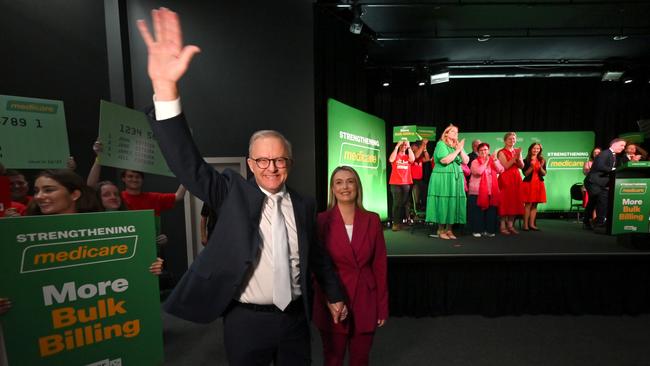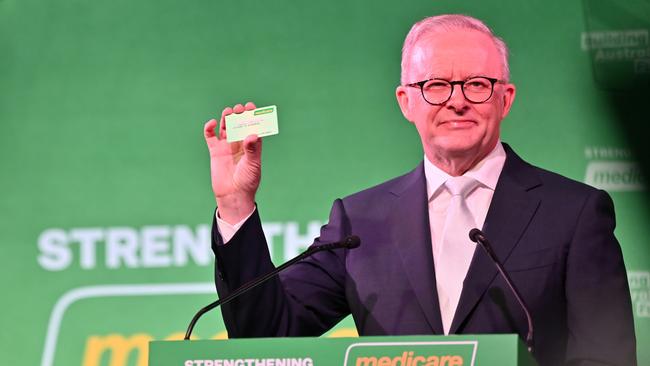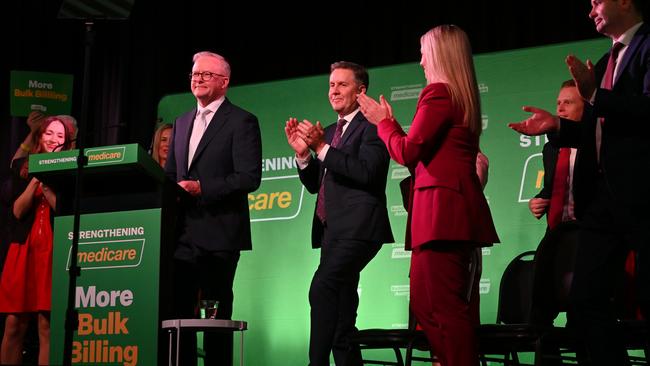
There’s also no doubt that the primary care system is in desperate need of investment and the need to make seeing a GP affordable for all Australians is now situation critical.
But there are many unanswered questions about Labor’s Medicare election platform and several indications that politics may come at the expense of longer-term policy reform.
The risk that bulk billing incentives may undermine Labor’s long-term project of modernising Medicare in gearing it structurally to reward the time-consuming, resource-intensive and multidisciplinary care required to deal with a catastrophe of widespread chronic disease looms large.

The elephant in the waiting room for Australian healthcare is the tide of chronic disease washing over the country.
Diabetes and chronic mental health conditions that cost our health system dearly need complex health care and prevention.
GP consultations lasting a few minutes won’t fix this imperative, but indeed probably have the opposite effect and draw resources away from the real problem at the heart of Australians health.
They could be, however, just what the doctor ordered for the government’s political ills.
It’s notable that there was zero mention of Labor’s long-term policy agenda of modernising Medicare to shift it from a fee-for-service funding model to one better geared to funding multidisciplinary teams in its pre-election health blockbuster election announcement.
That may be because this policy moves in precisely the opposite direction.
Fully bulk-billing practices have always been associated with six-minute medicine.
At the moment across the country, most of the fully bulk-billing clinics that remain are the corporate, sometimes private equity-owned medical centres that have the economies of scale to be able to do so.
But care of complex health conditions requires continuity of care and time.
It’s an open question as to whether fully bulk-billing practices would actually be a good thing for this purpose.
It’s welcome that the bulk billing incentive will be extended to all Australians in circumstances in which the Productivity Commission just last week estimated 8.8 per cent of patients across the country delayed seeing a doctor because they could not afford it.
Labor’s initial extension of the bulk billing incentive two years ago helped those who were always more likely to be bulk billed anywhere and left particularly the working poor out in the cold.
The problem with incentivising doctors to bulk bill one group of patients is that, while the incentive is still lower than the gap fees GPs would otherwise recruit, out-of-pocket costs may rise for other patients and that appears to be exactly what has happened.

Research published only last week revealed that the highest out-of-pocket costs for GP visits were paid by the most vulnerable Australians.
There are major questions in this policy for the practices that do not decide to become fully bulk-billing because of this policy, which will be most, how it will come to pass that patients will be bulk billed or not?
How individual practices decided to bill has always been up to them and is not uniform across the country. But the extension to the bulk billing incentive for all Australians is likely to leave many Australians continuing to face high out-of-pocket costs while costs drop dramatically for others.
You might wonder why the government didn’t simply raise the Medicare rebate for all, and the answer to that is that such a move would be likely to be swallowed up by doctors simply raising out-of-pocket costs.
Labor’s policy is intended to sidestep that landmine by tying the increased payments to doctors to bulk billing, with no increase for consultations with a gap.
The practices caring for high numbers of chronic diseases in major city fringes and regional areas are likely to take the chance to bulk bill more of their vulnerable cash-strapped patients. That is, of course, a good thing.
But those coping with multimorbidities everywhere needing long consultations and multidisciplinary care may not be bulk billed at all.
Perhaps that’s as it should be because the levers of this policy are aimed at supporting those that need bulk billing the most.
This policy does not incentivise shorter consultations that are not fit for purpose in preventing and treating chronic disease.
It also potentially flies in the face of the concept of universality that has always been the beating heart of Medicare.






No doubt about it – a pitch to voters that Labor will make the biggest investment in Medicare since its inception and restore bulk billing to millions of Australians is seductive and powerful politics.